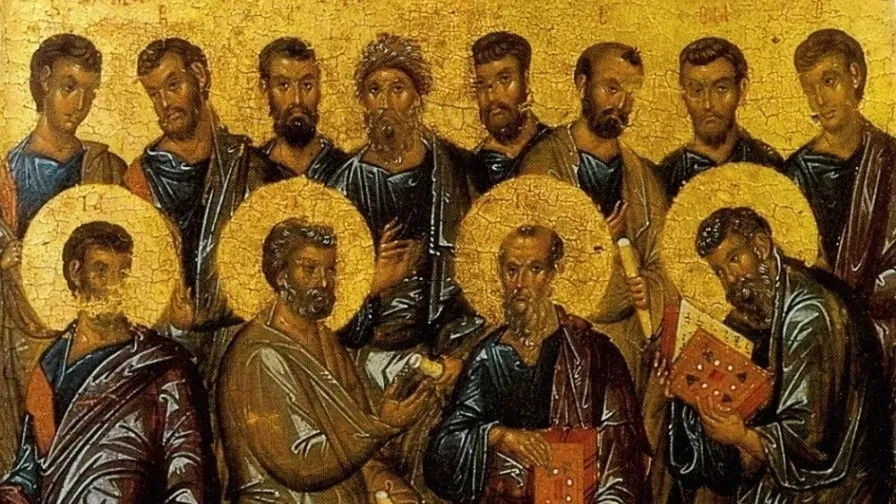Ordinary men

And when he had called unto him his twelve disciples, he gave them power against unclean spirits, to cast them out, and to heal all manner of sickness and all manner of disease. Now the names of the twelve apostles are these; The first, Simon, who is called Peter, and Andrew his brother; James the son of Zebedee, and John his brother; Philip, and Bartholomew; Thomas, and Matthew the publican; James the son of Alphaeus, and Lebbaeus, whose surname was Thaddaeus; Simon the Canaanite, and Judas Iscariot, who also betrayed him. Matthew 10:1-4
Who were the apostles? Well, they were ordinary men. They were not only men, but they were common and unspectacular in every sense of the term – they were not great in any worldly sense. They were not highly educated, and they were not professional theologians. They lacked influence and worldly power.
When we look at the list, we notice that, first of all, most of the disciples evidently were from Galilee. We know that Peter, Andrew, John and James were, because they earned their living off the Sea of Galilee as fishermen and we are told that Peter and Andrew lived in Capernaum. Matthew was a tax-collector in Capernaum, so he too was a Galilean. Philip is said to have his home in Bethsaida, Peter’s original home (Jn. 1:44). Furthermore, it is often thought that Bartholomew (or “Son of Tolmai”) is another name for Nathanael of Cana in Galilee (Jn. 21:2). We can’t be so certain about this, but it is still almost certain that he was from Galilee since Philip obviously knew him so well. There are three reasons why people think Bartholomew is Nathanael: (1) because in all four lists of the apostles, Philip and Bartholomew are together, indicating that they were probably companions; (2) Philip was in fact Nathanael’s friend, since he brought him to Jesus; (3) in John’s gospel, Nathanael is associated with the apostles (Jn. 21:1,ff). Of the remaining apostles we can’t be as sure, but certainly over half of the apostles were originally from Galilee.
This is significant because people from Galilee were looked down upon by the religious and cultural elites in Jerusalem. If Jesus had intended to impress the nation with his disciples, he would have looked elsewhere for those who would bear his message. But he didn’t. God loves to use the common, ordinary believer to bear witness to his name. In fact, this is the normal way he operates, as Paul makes clear: “For ye see your calling brethren, how that not many wise men after the flesh, not many mighty, not many noble, are called: but God hath chosen the foolish things of the world to confound the wise: and God hath chosen the weak things of the world to confound the things which are mighty; and base things of the world, and things which are despised, hath God chosen, yea, and things which are not, to bring to nought things that are: that no flesh should glory in his presence” (I Cor. 1:26-29).
Now that doesn’t mean that God doesn’t sometimes use people with remarkable talents and abilities (think of the apostle Paul!). He does. Nor is this an excuse to not develop our own talents and abilities. We should. However, like the apostles, the fact of the matter is that all of us are people of limited abilities. That is true of everyone. One person’s limit may be different from another’s but we are all limited, finite beings. And at some point, we are going to realize that some tasks are bigger than us. But that is okay. Think about the role the apostles were meant to play – build the church! How were they going to do that? But they did it because our Lord called them to do it. Even so, God blesses us with grace to fulfill his will in this world, no matter how daunting the task may seem to be. Our success is not a function primarily of our own talents. It’s primarily a function of God’s call on our life and our obedience to that call. Yes, the apostles were ordinary people. But they followed Jesus when he called them, and that’s what made them successful in their ministry and life.